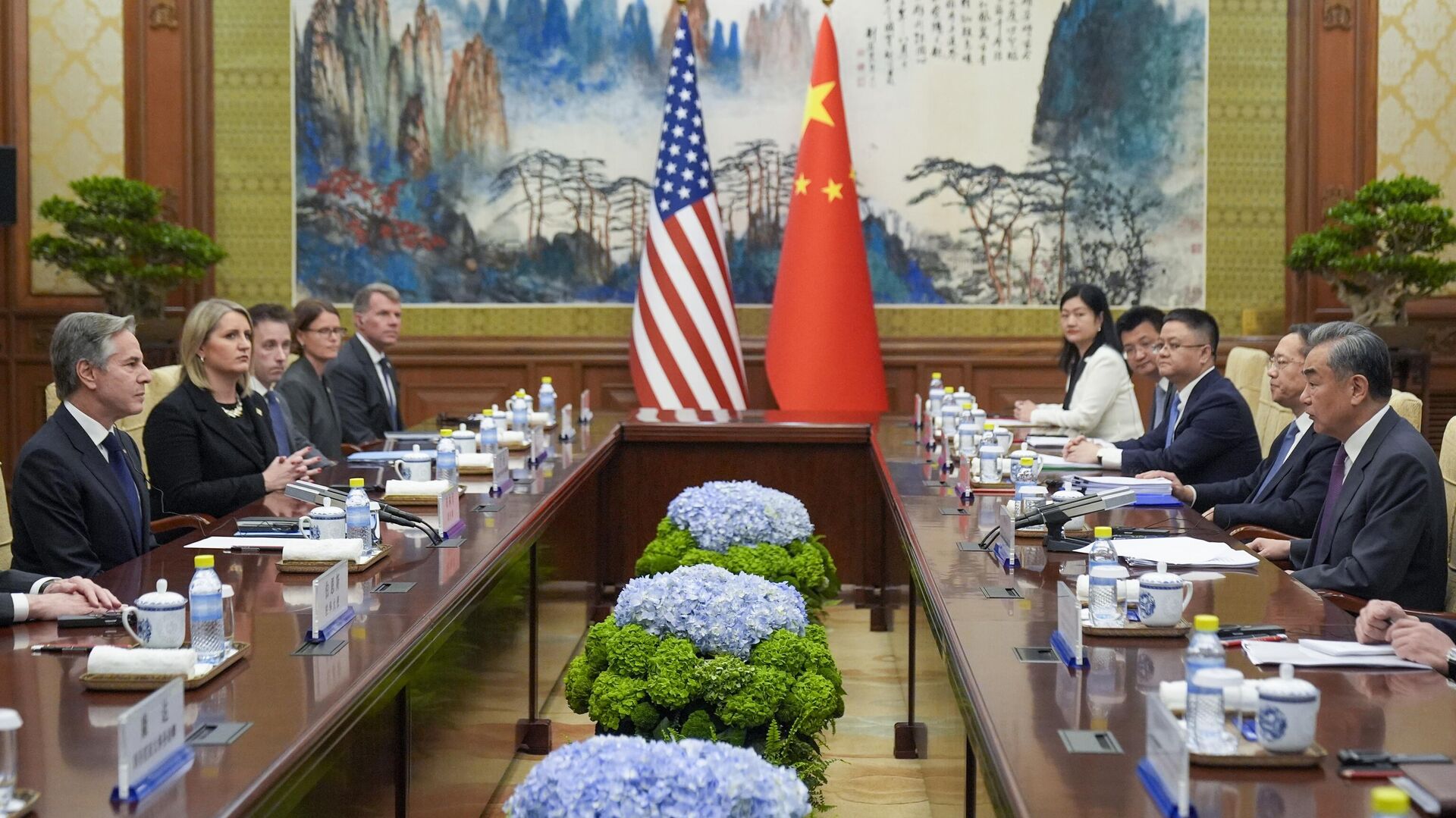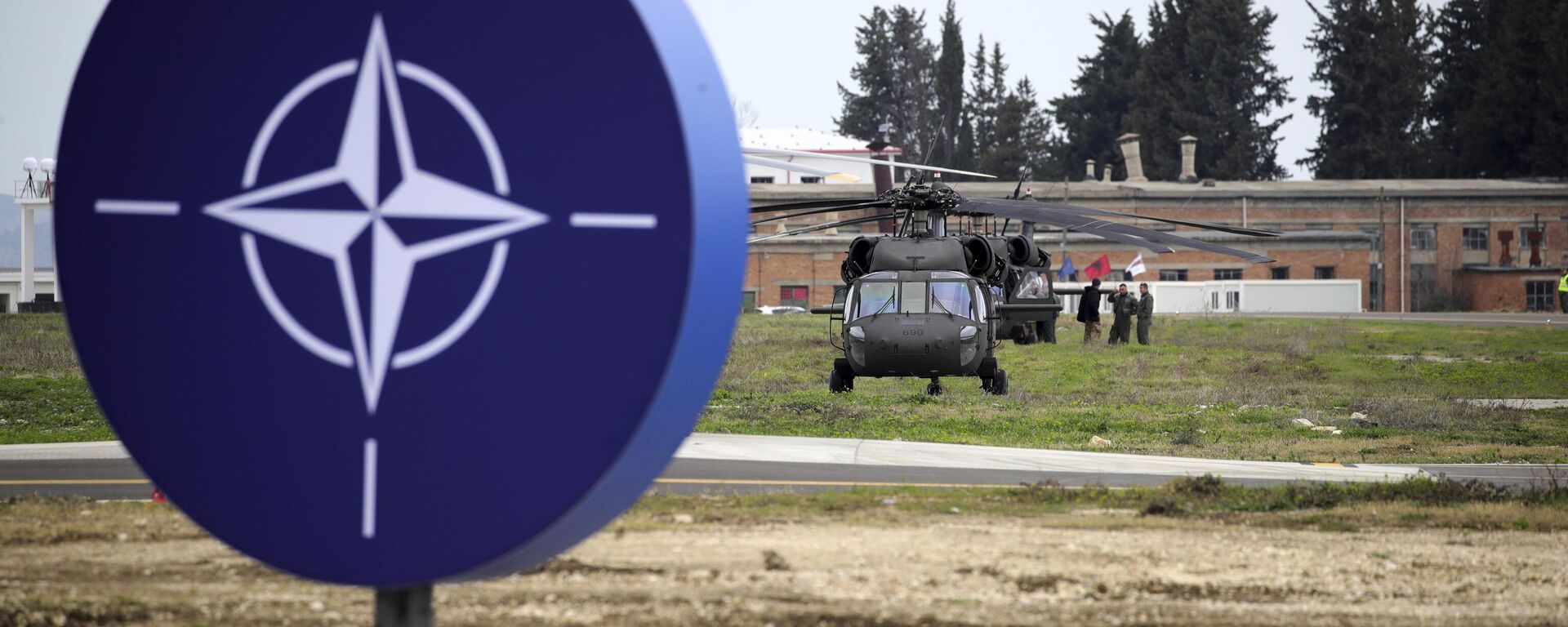No Chance for Substantive US-China Arms Dialogue Until After US Presidential Election, Experts Say
09:22 19.07.2024 (Updated: 10:29 19.07.2024)

© AP Photo / Mark Schiefelbein
Subscribe
WASHINGTON (Sputnik), Kirill Krasilnikov - The arms control contacts between the United States and China will continue despite Beijing suspending official consultations over Taiwan, but there will be no substantive dialogue until after the US presidential election, experts told Sputnik.
Earlier in the week, Chinese Foreign Ministry spokesman Lin Jian said that Beijing suspended consultations with Washington on arms control and non-proliferation due to the US's sale of weapons to Taiwan. The US, in response, has confirmed its openness to developing and implementing concrete risk reduction measures with China.
"I expect a fair amount of shuttle diplomacy with US diplomats, like Secretary of State [Antony] Blinken, Defense Secretary [Lloyd] Austin, National Security Advisor Jake Sullivan meeting their Chinese counterparts, likely in a third country. This is bad timing to bring conversations back on track. The Biden Administration is focused on the 2024 Presidential election, with [ex-President Donald] Trump leading in most polls," Elizabeth Freund Larus, professor emerita of political science and international affairs at the University of Mary Washington, said.
Bucknell University Professor of Political Science and International Relations Zhiqun Zhu thinks that although the communication channels will stay open, there will be no significant conversations on arms control and non-proliferation.
"Diplomatic contacts on other issues will be affected negatively. The United States and China are not motivated to improve relations before the November US election. After the election, depending on the outcome, there may be some efforts on both sides to stabilize and even improve relations," Zhu said.
In a similar vein, Allen Carlson, an associate professor in Cornell University's Government Department, believes that the presidential election cycle in the US can have a decisive role for the future of the US-China relationship.
"As the November election grows closer, China, and more specifically, Taiwan, could easily get dragged into what by all accounts looks to be a very close and hotly contested vote. Should [President Joe] Biden remain in the race, it is possible he will ramp up US support for Taiwan as a way to bolster his strong on China credentials. This could lead to counter-measures by Beijing. At the same time, it is clear that former President Trump will continue to talk tough on China and likely float all sorts of unorthodox policy ideas while on the campaign trail," Carlson said.
The expert suggested that, depending on the outcomes of the election, there will be either a continuation of the current approach to China under Biden, or "just about anything" in the event if Trump wins.
At the same time, according to Larus, China is currently using the tactic of escalation regardless of what the US and the Taiwanese government of Lai Ching-te do.
"China is continually ramping up its aggression in the Taiwan Strait in an effort to destabilize Lai’s government and heighten fear that the Taiwan military is no match for China’s and sowing doubts about US commitment to Taiwan‘s security, so China’s escalation might not be directly related to these developments but is becoming the new normal ... Beijing saying that China’s actions are a response to Taiwan obstinance is merely cover for the Chinese Communist Party," Larus stated.
Dennis Hickey, a distinguished professor emeritus at Missouri State University, suggested that Beijing’s actions are similar to what it has always done in response to US arms sales to Taiwan.
"Taiwan has always been the most sensitive issue in US-China relations, and that is not going to change. Normally, they get over it after a while. Let’s hope that relations between Washington and Beijing return to normal soon," Hickey said.

